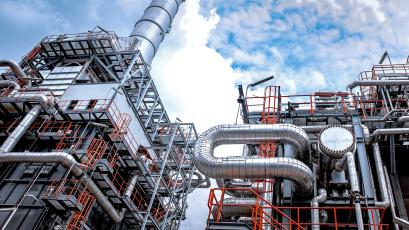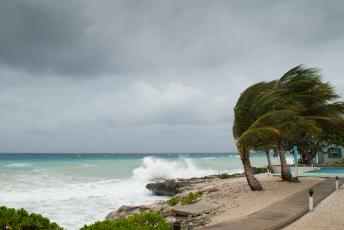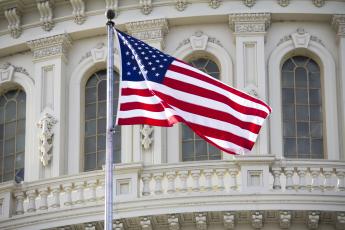Coronavirus developments are front of mind for everyone, including the staff at AFPM. We took a moment to speak with Jeff Gunnulfsen, senior director, security and risk management, about industry preparedness for the pandemic. Lara Swett, AFPM’s vice president of technical and safety programs, provided additional insights on March 23.
How have the fuel and petrochemical industries prepared to deal with the coronavirus pandemic?
Jeff Gunnulfsen, Senior Director, Security and Risk Management: For our companies, preparing for a range of emergencies such as hurricanes, earthquakes or other major events is part of doing business, and our members have developed emergency preparedness plans to ensure business continuity in these situations.
There have been several threats of pandemics over the years that many AFPM members have made considerations for: bird flu, Ebola and the H1N1 pandemic in 2009, to cite a few examples. H1N1, specifically, got a lot of members’ attention and resulted in their adding pandemic planning to their emergency preparedness plans and, in some instances, even developing pandemic guides. This wasn’t something that the government required; just something that the industry decided to do to become more prepared.
In response to this current event, companies have set up emergency response centers, established communications across their sites and have been implementing customized COVID-19 plans that include considerations for staffing, regular disinfecting, remote working and implementing social distancing for all personnel functions.
Our members are also engaged in other activities to ensure that everyone is safe and informed of the developing situation, including standing up emergency support groups and medical teams to support their employees and to be prepared for emerging developments. These teams include medical, logistics, safety and security experts who are ready to help the company and facilities manage the upcoming challenge. These teams are meeting regularly to assess changes in the situation and what they need to do.
Do your industries work with the government to coordinate activities or share information?
JG: Yes, we are in regular contact with federal, state and local agencies. Specific to COVID-19, the refining industry is part of regular calls with government agencies like the Department of Homeland Security, the Department of Energy and FEMA to stay apprised of the latest developments and to share information and questions. We are also in regular contact with the Coast Guard regarding deliveries into port and whether additional screenings are required. And at the state and local levels, we are coordinating with the appropriate agencies and community officials.
Staffing refineries and petrochemical facilities is a 24/7 endeavor. Given that this pandemic may last months, what precautions are taken at the facilities to ensure everyone remains in good health?
JG: Refineries are 24-hour operations, but they can run on varied staffing schedules. Many have experience with these challenges from past emergencies. In this case, alternative staffing schedules are being implemented and business-continuity plans are in place to accommodate staffing needs in the event of illness.
In addition to standing up the emergency support groups and medical teams I mentioned, facilities are also limiting visitors and conducting employee health checks where necessary, applying good social distancing practices to daily operations, and conducting regular disinfecting and cleaning.
Lara Swett, Vice President of Technical and Safety Programs: While reduced staffing schedules are part of the industry’s regular response to major weather events, a pandemic such as COVID-19, poses a different, unprecedented level of challenge. The impact isn’t confined to one region, it’s global, and the timeline for resolving the crisis is indefinite.
As you noted, continuing essential refinery operations depends on keeping employees in good health and minimizing the potential for any illness spread. One of the major things sites are doing to protect their employees is ensuring zero to minimal contact between various staff shifts.
This is a significant change in operations as shifts have formalized shift turnovers to make sure they know what happened on the previous shift and to understand how that might impact their operations. Typically, this would be done in person. Now, communications have been adjusted to make sure the same essential information is shared between shift teams without requiring any physical face-to-face engagement. And of course, as Jeff said, there’s a lot of preventative disinfecting taking place.
Another thing sites have done is move any task that can be accomplished outside of the control room, such as permit writing, out of the control room.
Facilities, in both control rooms and administration buildings, are broadly restricting headcount on site to just those individuals serving in roles that cannot be performed remotely. Other work is continuing to be accomplished from home.
Each company has the same goal: protecting staff and continuing core operations to supply America’s energy needs.
What are some of the advantages that the fuel and petrochemical industries have in situations like this?
LS: Plainly put, we’re not starting from scratch. As required by law, AFPM member facilities already have emergency preparedness plans in place, and therefore have the management systems and infrastructure already built to handle a variety of emergencies. With the onset of COVID-19, sites have set up the emergency response centers, developed COVID-19 specific preparedness and management plans and launched communication systems that inform employees and, in some cases, communities about operational adjustments and emergency protocols in place. In accordance with these plans, sites are also engaging regularly with government agencies to share information and make real-time adjustments to emergency operations plans, if needed.
JG: Our industries have a long history of being resilient, both on the refining and petrochemical sides. Our sites have had business continuity and emergency preparedness plans in place for decades.
Member companies regularly hold emergency exercises at their plants and across sites and corporate headquarters to make sure everyone’s on the same page. When they do these exercises, their emergency support and medical teams are a part of it. Sometimes they do it in conjunction with neighboring industrial sites, and sometimes with local officials.
At a national level, our members participate with the Department of Homeland Security and Department of Energy in running larger scenarios, such as how to respond to an earthquake or a major loss of power. Many of our sites are considered critical infrastructure, so they’ve been held to higher standards of preparedness for years.
While the situation with COVID-19 is ever-changing, refiners and petrochemical producers have pandemic and business continuity plans in place guiding their responses, allowing them to nimbly respond to the fluidity of the situation. The health and welfare of industry employees and the community remains their top priority. AFPM members have the know-how to supply America’s energy needs, even in difficult times like these, because planning, preparing and practicing for emergencies and disruptions is an ongoing part of fuel and petrochemical manufacturer business models.
This story was originally posted on March 19. Updates, including contributions from Lara Swett, were incorporated on March 23.


